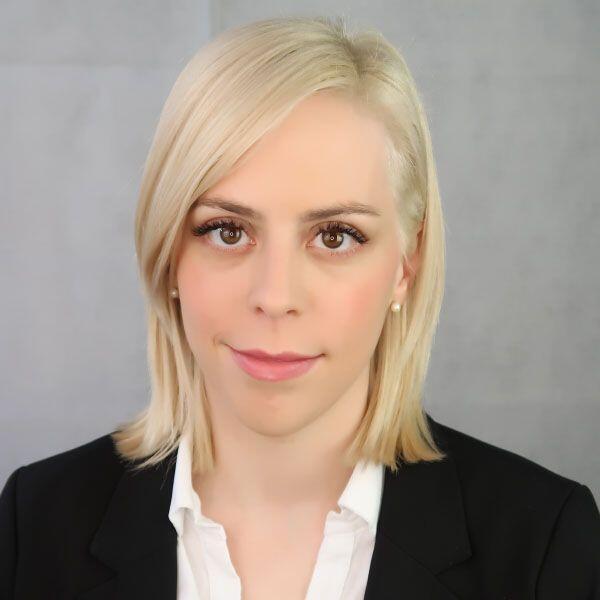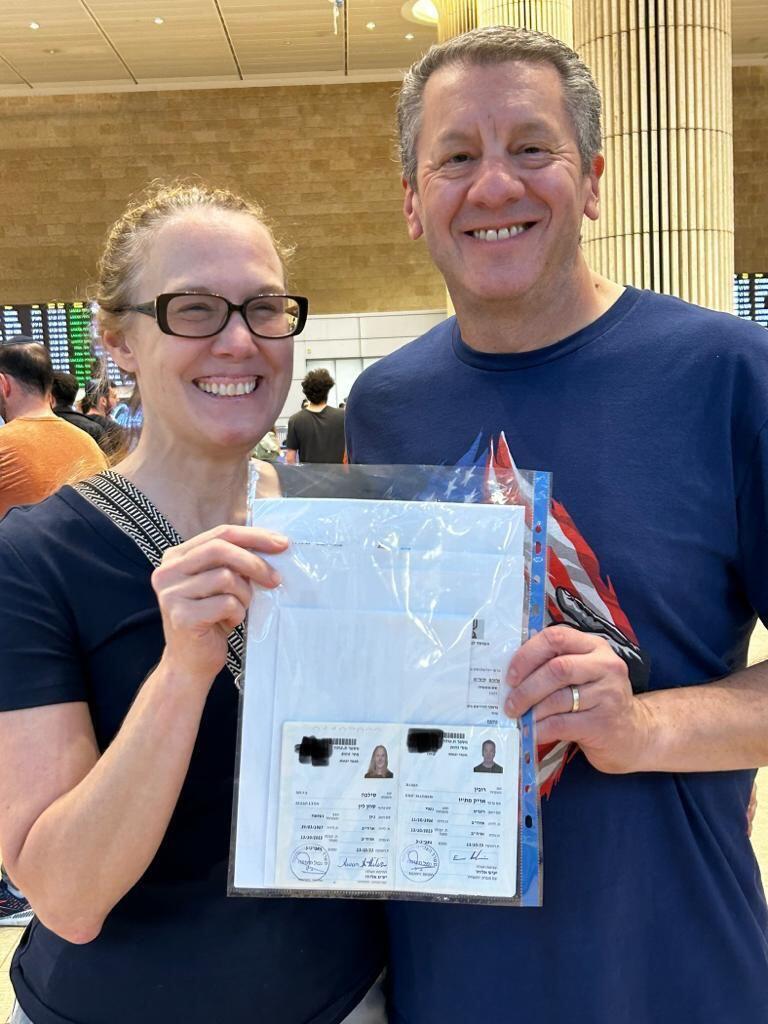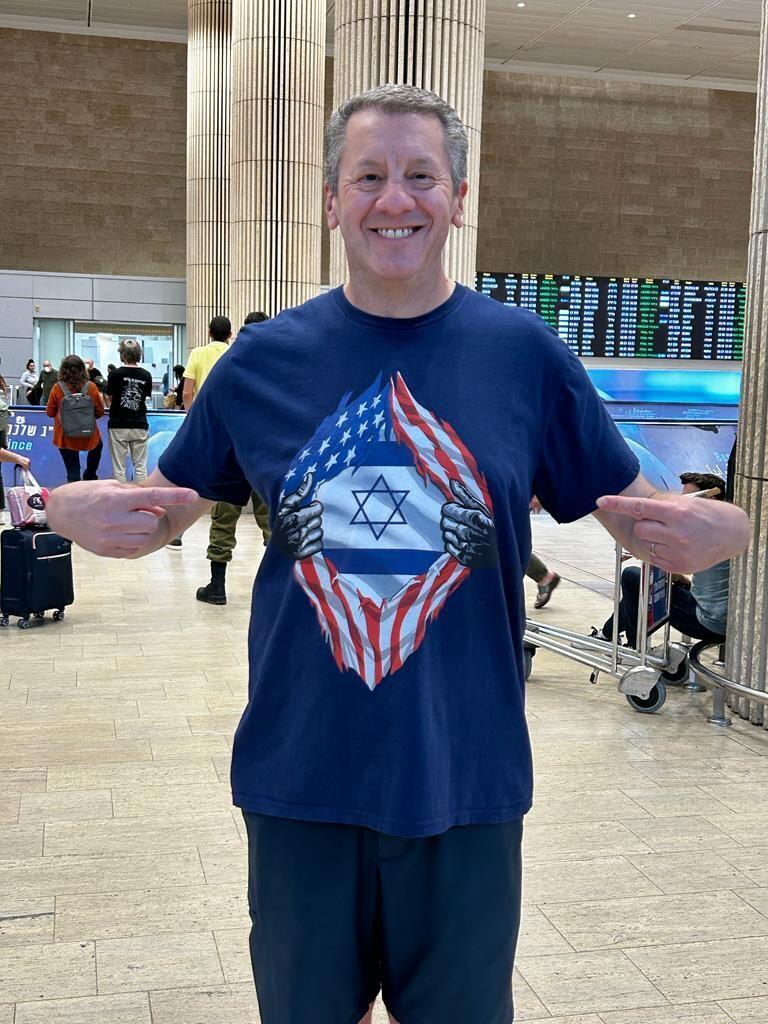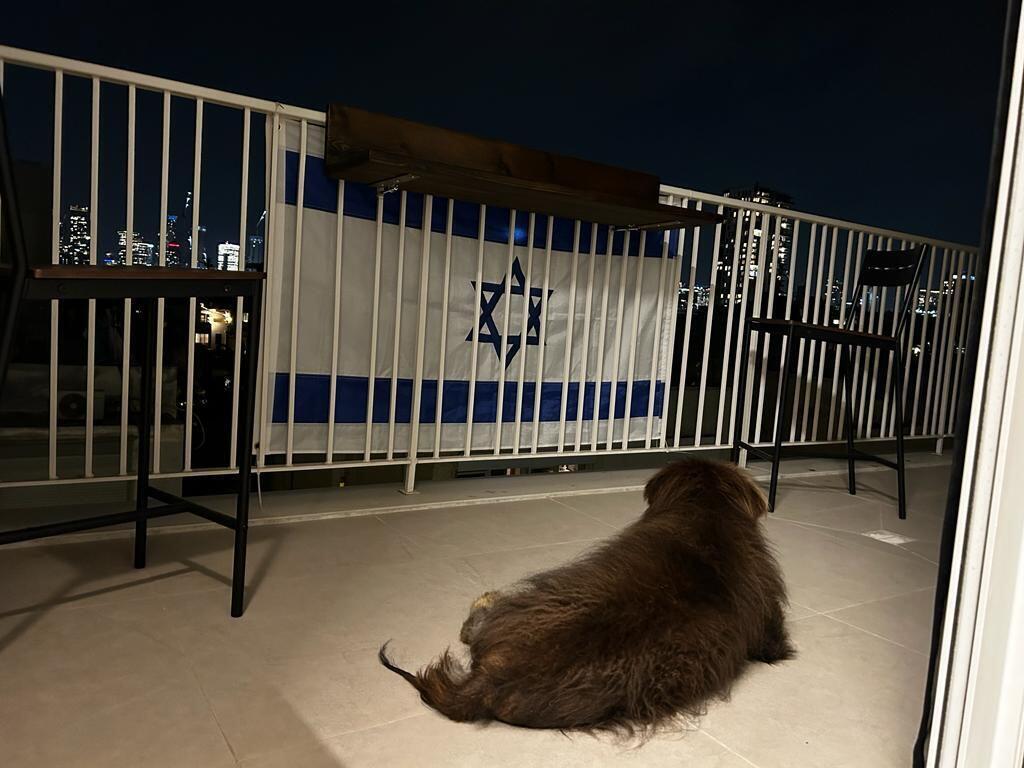Getting your Trinity Audio player ready...
“Why are you going? Are you crazy?” This is what friends and colleagues said when asking Eric and Sue Rubin why they would make Aliyah, moving their lives from the United States to Israel, just days after the October 7 massacre in southern Israel in which more than 1,400 Israelis were murdered by Hamas and over 240 more were kidnapped and taken to Gaza.
More stories:
But Eric and Sue, both of whom are proud Zionists, were determined to begin their new lives in Israel, no matter the cost. “You can't just say you love Israel when it's good times.... So is this a fun time to come? No, but I couldn't think of a more important time to come,” says Eric.
4 View gallery
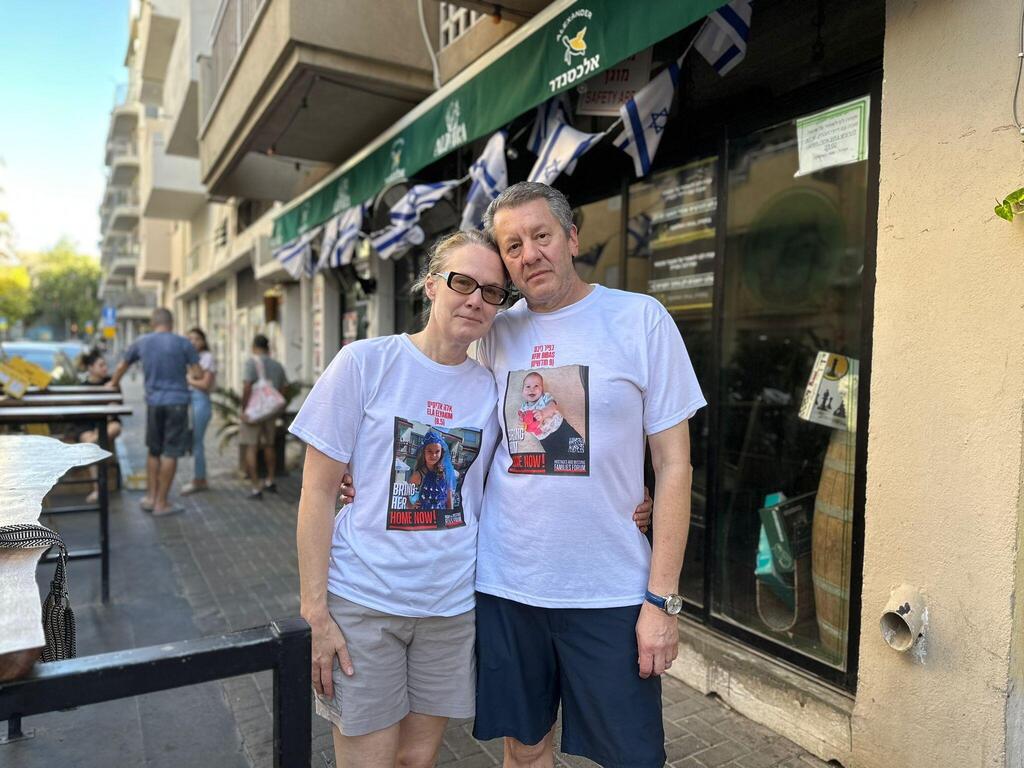

Eric and Sue Rubin in Tel Aviv supporting the call to bring back the hostages
(Photo: Emily Schrader)
Eric, 57, a native New Yorker raised in a Jewish home, and a former financial consultant, has been involved in the Jewish community for several years volunteering on the board of numerous Jewish and pro-Israel non-profits. His wife, Sue, 56, who is Catholic, works as a financial consultant. While the couple had planned to make Aliyah for some time, it was the October 7 attacks that were the turning point.
“Our Aliyah was originally planned for October 31, 5 days after the war started, Sue said, 'Is there anything new?' And I just said to her, 'I just can't stay here anymore. I’ve got to go there and do something.' And she said, ‘if you can get a flight, let's go!’” according to Eric.
“From the time we decided to start looking for flights to the time we were out the door it was 40 minutes,” Eric says. “We threw stuff in, literally, we threw stuff in suitcases. We had to drive to the train station in Baltimore, take a train, Amtrak to Penn Station, take an Uber to JFK, and if the plane wasn't an hour late, we wouldn't have made it! Two days later, we're here.”
Aliyah under fire
Eric and Sue are taking being under rocket fire seriously, but not allowing it to dictate their lives – despite the fact mere hours after making Aliyah on October 14, they were greeted with a rocket siren.
“Since we made Aliyah, we were in the safe room every single day. Sometimes once, sometimes twice, sometimes three times. It's not fun, but if that's the sacrifice I make for what everyone else has been through including 1,400 deaths, I can put up with going into a safe room three times a day for 10 minutes,” Eric tells Ynetnews.
Eric, who has made many trips to Israel throughout his life, as well as in recent months as part of various pro-Israel NGOs, organized multiple delegations of professional athletes, including NBA stars, as part of Athletes for Israel. He is also the executive director of Together Vouch for Each Other US – the American branch of Yoseph Haddad’s organization to bridge gaps between Israeli Arabs and Jews. He has spoken extensively about his passion for Israel and desire to give back – but that desire only grew as Israel faced an onslaught of terror.
“This was not a naive decision. But you know what? This can't be someone else's fight all the time. It can't just be my Israeli family's fight. So, we're going to come…How is it fair or right that the country that was created to prevent another Holocaust is going through this and we're not going to come because it's not safe?” says Eric, who adds that Sue was fully on board from the start as well.
“She's amazing…she said: ‘You're my husband and you're Jewish and I have a Jewish family and we're going to go and fight this together,’" he says.
"I'm the one who said to Eric that ‘I don't know where in the U.S. I would want to retire,’ but after 2019, I said, ‘But I do know now, and that's Israel!' I think he was a little shocked at that"
Although she grew up Catholic, Sue is also a proud Israeli with a heart for the Jewish people – despite only visiting for the first time in 2019 – a trip which she says changed her entire perspective on the state of Israel for the better. “I was probably more amazed than what I was expecting,” she tells Ynetnews. While she didn’t have a negative perception of Israel growing up, she had heard all about the conflict and envisioned it more like a war zone. But after her 2019 trip, she was sold.
“Coming here wasn't necessarily about Eric,” she explains. “I think it took me coming here to realize [what Israel is], and then meeting all the people that we have – all the Israelis, and becoming friends. I'm the one who said to Eric that ‘I don't know where in the U.S. I would want to retire,’ but after 2019, I said, ‘But I do know now, and that's Israel!' I think he was a little shocked at that.”
In response to the criticism Israel has long faced from the international community, Sue tells Ynetnews: “I think the Western world needs to wake up and just think about what's going on and not be ignorant – and they should support Israel and Jews. I guess I never realized, obviously not growing up as Jewish, how people are so against Israel. And I don't understand why, I don't get it.”
Celebrating Israel’s diversity
Eric and Sue’s relationship is a beautiful example of how Israeli society consists of Jews and non-Jews, willing to sacrifice everything for the Jewish and democratic state.
“Speaking up for Israel is important because people might feel as though it is just a Jewish state, but it's not only that. And why shouldn't everybody support that no matter who they are or what religion they are? I guess what I don't get is why are people supporting Hamas that are women, that are LGBTQ? It doesn’t make sense to me. But I think what's also uplifting are those that we're hearing from in the Arab world, inside and outside of Israel, that are supportive,” Sue explains.
Eric nods his agreement. “Everyone needs to realize that on October 7th they didn't just kill Jews. They killed Muslims. They killed Christians. They killed Jews. They killed workers who came here from Thailand and other countries. There are many, many proud Arab-Israelis who are fighting in the war who, even outside of October 7th, have given their lives to defend this nation. I think the world needs to remember that they are equal heroes. They're part of the IDF or they're part of the national police, and every day they show up to defend their homeland…We came here not just to protect the Jewish nation, but we came here to protect everybody that is Israeli who believes in freedom and partnership and coexistence and just wants to get along.”
Commitment to fighting antisemitism
Eric and Sue both agree that the presence of rising antisemitism was a factor impacting their decision to come to Israel, with Eric noting that just in these past few weeks, friends and family told him that, for the first time ever, they were scared of the antisemitism in New York.
“I hope the Jews and the diaspora wake up and are serious about combating antisemitism on the left and on the right, and they need to withhold funding from these universities that are enablers allowing it to go on. We need to figure out how we finally get Congress to pass the law to stop allowing countries like Qatar to contribute money, hundreds of billions of dollars, to our universities to brainwash our kids. And everyone needs to be engaged somehow,” he says.
Since arriving in Israel, both Eric and Sue have been doing all they can to volunteer and support the country during the war. “We're doing whatever we can to support people,” says Eric. “I know I'm not a hero. I don't wear a uniform. I'm not a soldier. But the way I look at it is just little things, like going to a restaurant. There's still an economy here. People still need to work. People have to make money. Tipping a waitress, giving a little extra something, going to the supermarket. We're buying a lot more things than we might have wanted to, but everyone here has to keep living.”
Both Eric and Sue agree that unity is also a key factor when it comes to winning the war: “If we stay united, we will win,“ according to Eric.
But he is also firm in his message to Hamas and their allies. “To those that started this, I say, we will finish this on our terms. And if you think that you're going to stop people like me and Sue from coming to Israel and establishing our home in our homeland that we've had ancestral rights, you need to lay off the drugs, because it's not going to happen!”
Making the dream a reality
In general, Aliyah has always been a lifelong dream for Eric, who explains that his passion for Israel only intensified over the years. “Coming back here [to Israel] as an adult, developing unbelievable, I don't even want to say friendships, people here are my family. People in Israel care about each other. This doesn't exist in the United States or most other places around the world. I noticed it was always a yearning to be home, but when you're here and you're with your people, you just feel home,” he explains.
While Eric and Sue, along with their dog Kodi, begin their new lives as Israelis, Eric’s message to the diaspora during this time of war is this: “We heard too many stories of Jews in America that heard what was going on in World War II and downplayed it. Do something this time. You don't want to make Aliyah? Don't make Aliyah. Buy a bottle of Israeli wine, invest in an Israeli tech company, make a loan to Israelis who are suffering, or even come here for a week when this is over, and contribute to the economy. Realize that Israelis are fighting for our lives around the world. This is not just fighting for Israel. They're fighting to protect Jews around the world.”



